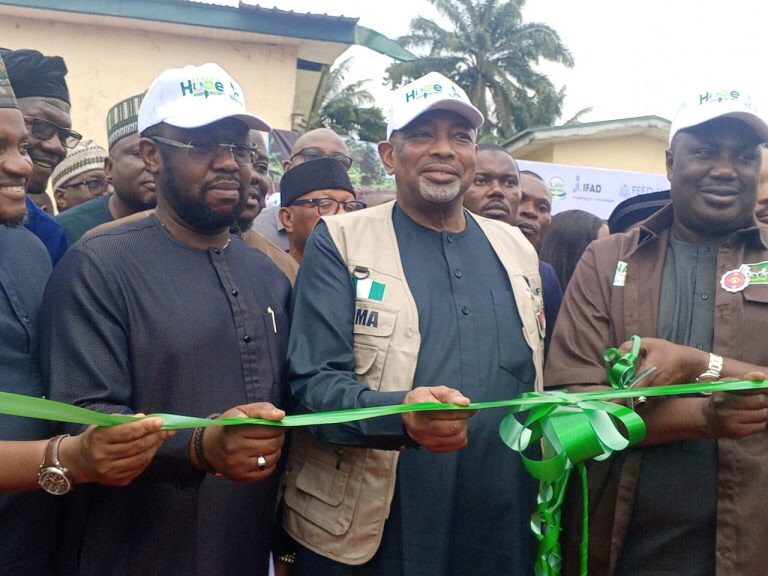The Minister of Agriculture and Food Security, Sen. Abubakar Kyari, on Thursday, officially opened a cutting-edge Fish Hatchery facility in Calabar, Cross River to produce over 20 million juvenile fish yearly.
It also features a fully equipped laboratory, and classrooms for educational purposes, and serves as a research center.
The hatchery was established through funding from the Federal Government of Nigeria, the International Fund for Agricultural Development (IFAD), and the Livelihood Improvement Family Enterprises Project for the Niger Delta (LIFE-ND), along with contributions from the Cross River government and the USAID Feed the Future Project, among other private sector partners.
During the inauguration, Kyari highlighted that the facility would not only enhance food security in the country but also act as a center for job creation and income opportunities for youth and women involved in aquaculture.
The minister emphasized the South-South region’s crucial role as a hub for oil and fisheries in Nigeria. He noted that this facility aims to strengthen the capabilities of fish farmers and boost productivity through research initiatives.
Kyari also mentioned that President Bola Tinubu’s Renewed Hope Agenda is focused on improving the nation’s agri-food system through technology and innovation to foster job creation, empower youth, and alleviate poverty.
Governor Bassey Otu remarked that the model fish hatchery project was designed to tackle issues related to the availability and accessibility of fish, which have hindered fish farming in the region.
Represented by Agriculture and Irrigation Development Commissioner Mr. Johnson Ebokpo, Otu expressed hope that the hatchery would lead to lower production costs for fish feed, thereby increasing profitability for fish farmers.
The governor also expressed gratitude to the Agriculture and Food Security Minister for fostering a supportive environment for various foreign aid projects in the state, such as those from USAID.
Mr. Abiodun Sanni, National Project Coordinator for LIFE-ND, shared that the project exemplifies successful collaboration aimed at encouraging youth in the Niger Delta to fully engage with agriculture.
Sanni highlighted that the initiative is expected to generate jobs, promote wealth, and ensure food security, potentially transforming aquaculture in Cross River. He also noted that the LIFE-ND project had exceeded its initial target, benefiting about 26,470 individuals over five years across six participating states.
Dr. Ben Odoemena, Chief of Party for USAID Feed the Future Agricultural Extension and Advisory Services, stated that the production of 20 million juveniles could inject approximately N1.6 billion into the Cross River economy each year, potentially generating around N60 billion annually if managed properly.




